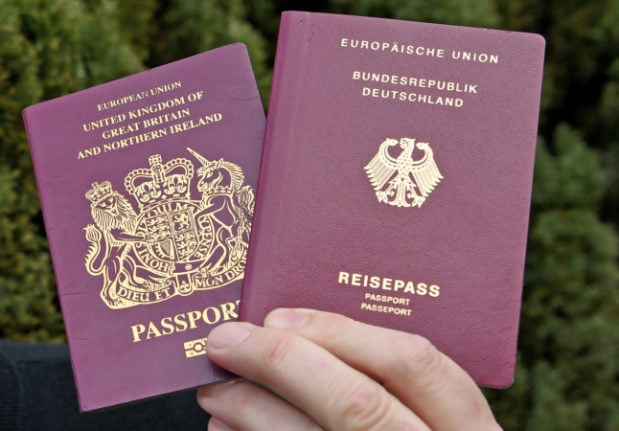As the Bundestag prepares to debate the federal traffic-light coalition’s proposed changes to German citizenship laws, the conservative Christian Democrats (CDU) are pushing back – saying the public doesn’t agree with the changes.
The party’s leader in the Bundestag, Thorsten Frei, told Parliament this month that the traffic light’s plans to allow dual citizenship and shorten the wait from eight years to five – and even to three years if the applicant can prove B2 level German – were at odds with 60-70 percent of the German public.
Frei referred to an online Civey poll showing that 62 percent of respondents saying that becoming German should require someone to renounce their previous citizenship.
READ ALSO:
- ‘Dangerous and wrong’: Why German MPs are clashing over citizenship plans
- EXPLAINED: Could Germany’s conservatives block dual citizenship?
Yet a recent “Deutschlandtrend” poll by public broadcaster ARD shows a more divided picture.
A slim majority of those respondents, about 49 percent, support the government’s plans for an easier citizenship law. Almost as many, or about 45 percent, are against the plans.
Regular Green Party voters are most likely to be supportive at 86 percent, with about two-thirds of Social Democrat voters, and an even 47-47 percent split among regular Free Democrat (FDP) voters. While more regular CDU voters are against the plans – about 44 percent are still in favour.
The same poll finds that the higher education someone has, the more likely they are to support the proposed changes, no matter what party they typically vote for. In fact, 64 percent of respondents with higher education are in favour of liberalising Germany’s citizenship laws.
Parliamentarians working on the law hope for it to pass the Bundestag by summer 2023.
READ ALSO: German business leaders back proposed citizenship reforms



 Please whitelist us to continue reading.
Please whitelist us to continue reading.
Germans did nothing to achieve being so lucky with their rights and freedoms. As long as immigrants pay taxes etc I don’t see the issue regarding dual nationality. Why not? What difference does it make to those already German?